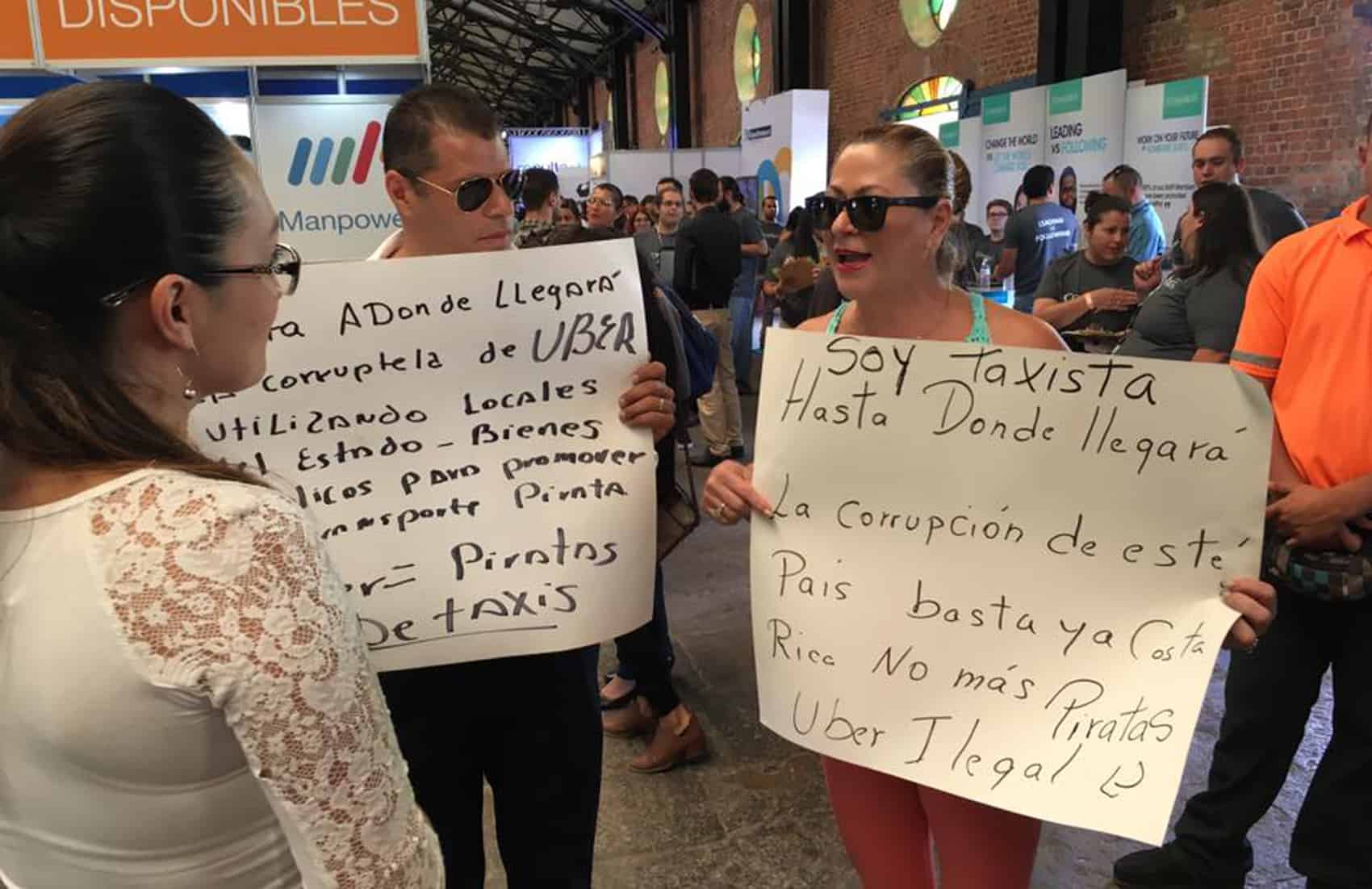Uber Costa Rica announced Friday that it would not participate in the final day of the Expoempleo job fair in San José after confrontations with taxi drivers Thursday and demonstrations Friday outside the Antigua Aduana, where the fair is being hosted. The move was a rare victory for taxi drivers against the aggressively expanding ride-hailing company.
“A group of taxi drivers is using threats and aggression, putting at risk the security of those attending Expo Empleo (sic) to look for dignified and sensible opportunities,” Uber Costa Rica said Friday morning in a statement.“For these reasons, we, taking a responsible position in favor of citizens and public security, will not continue at this event.”
The firm continued: “There is an enormous unemployment problem in Costa Rica. At Uber, we are committed to generating entrepreneurship opportunities for Costa Ricans. To date, thousands have found a dignified source of income in our community,” the statement continued.
Ante manifestaciones de taxistas @Uber_CR se retiró de la Expoempleo @nacion pic.twitter.com/HxLufbHYni
— Manuel Avendaño (@Avendano_cr) March 18, 2016
Police were at the job fair Thursday and Friday as taxi drivers blocked traffic out front and confronted some job seekers, according to local media reports. Channel 7 TV News reported that one of its cameramen was confronted by a protesting taxi driver outside the Antigua Aduana Friday morning.
Uber had two staff members at its booth to help would-be drivers get registered on the smartphone application, and to answer questions about the company’s proposed corporate services center, which it has previously said would employ 300 people locally.
Several legal decisions have found that Uber is illegal under current Costa Rican transportation laws. Meanwhile, the company has always maintained that its service is legal here.
Friday’s job fair exit was a rare example of Uber backing down. Uber’s entrance in Costa Rica has kept pace with the company’s notoriously aggressive expansion policy in other countries. The company’s service went live in August 2015 after brief discussions with the administration of President Luis Guillermo Solís failed to reach an agreement on the service’s legality.
Past protests by taxi drivers were gleefully met by the company with offers of free rides valued up to $30 each, leading some on Twitter to anticipate more bargains following the protests:
Este soy yo esperando la respuesta de @Uber_CR a la manifestación de la mafia roja… pic.twitter.com/tntI88bURG
— Pablo M (@PabloMontero05) March 18, 2016
“This is me waiting for @Uber_CR’s response to the protest from the red mafia,” tweeted @PabloMontero05, referring to the red-colored official taxis.
As of midday Friday, the company had not offered Tico riders any new deals.






